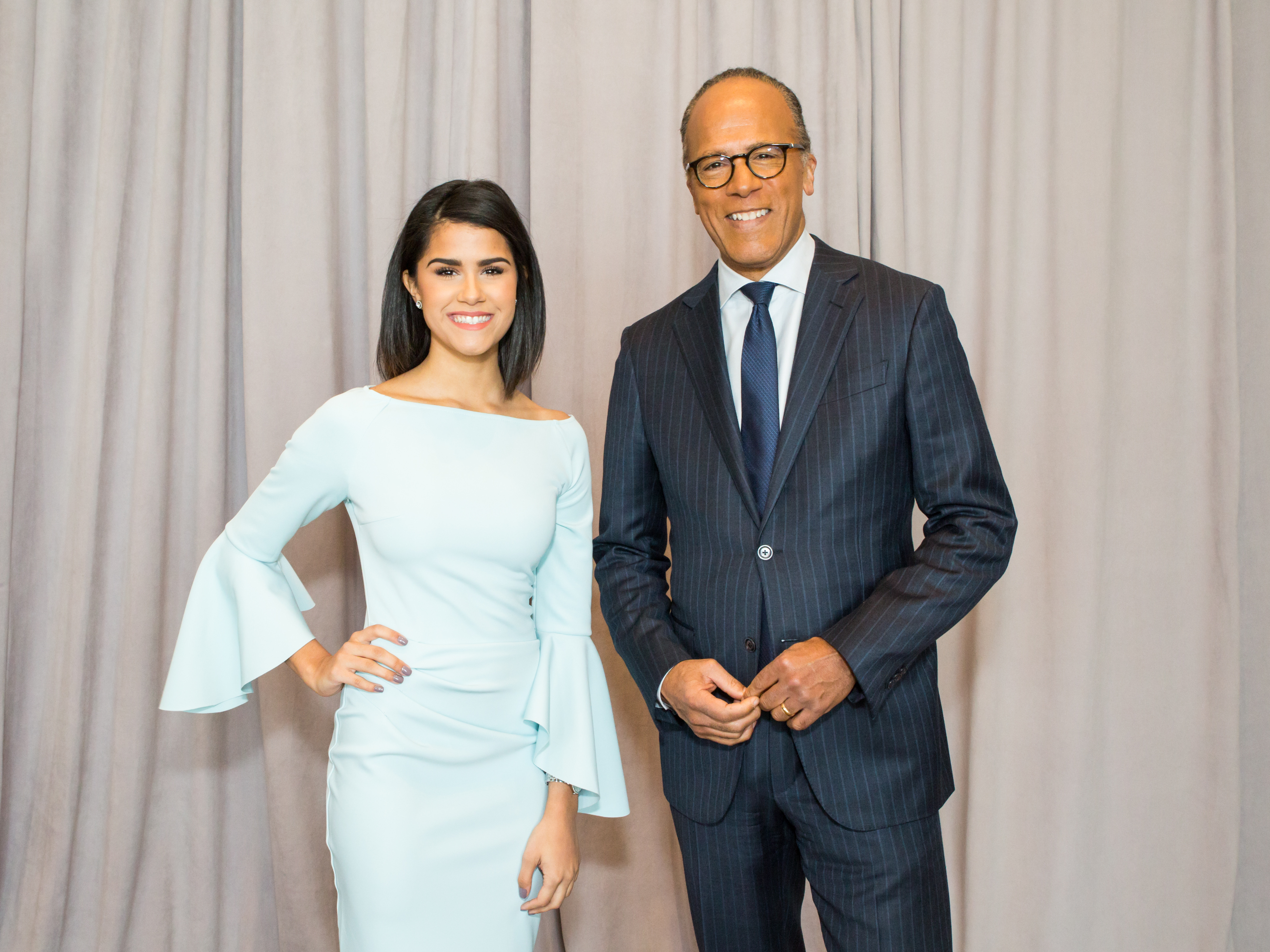Cronkite student is remote, resilient and ready to start journalism career

Editor's note: This story is part of a series of profiles of notable spring 2020 graduates.
Arizona State University’s Marcella Baietto said her last 18 months at the Cronkite School was a wild ride, starting with an internship in New York City, followed by reporting trips to Mexico and ending with remote broadcasts from her bedroom.
“It’s been exhilarating and exhausting, and it’s never boring,” said Baietto, who is graduating this month with a master’s degree from the Walter Cronkite School of Journalism and Mass Communication after collecting her bachelor’s degree last May. “It’s a job that has lot of adrenalin. At the end of each day, I feel like I’ve created something that’s tangible.”
It became tangible to Baietto in her senior year at Boulder Creek High School in Anthem, Arizona. That’s when she took a journalism class and instantly got hooked. By the end of the year, she looked into the University of Southern California, Syracuse and Missouri as possible places to earn a journalism degree, but all those options fell by the wayside when she understood that ASU had all she looking for.
“Once I figured out that the Cronkite School was one of the top journalism programs in the country, I didn’t apply anywhere else,” Baietto said. “It was intense, but it was totally worth it. I gained great experience here.”
Baietto, who is bilingual, is referring to her various stints in media. She’s worked as an arts and culture reporter for the State Press, a script writer for KTAR 92.3, a breaking news reporter for the Arizona Republic, and an investigative intern for Channel 12 News (KPNX-TV), and she landed a national internship with NBC Nightly News, where she produced breaking stories for reporter and news anchor Lester Holt.
“I did a lot of catering, I did a lot of coffee runs, but I was also able to write news banners, post file photos and videos and worked on the mid-term elections,” Baietto said. “It was very much an intern job, but I also made some very valuable connections. I grew up watching NBC, so it was a full-circle moment for sure.”
That circle returned to ASU when Holt was presented the 36th annual Walter Cronkite for Excellence in Journalism award at the Sheraton Phoenix Downtown on Nov. 4, 2019. Baietto introduced Holt to the 1,500-member audience.
“When I was a freshman, CBS’s Scott Pelley won the award,” Baietto said. “I remember sitting there watching another student make his introduction and saying to myself, ‘I want to do that one day.’ It was so crazy that I was able to come back and actually do it for Lester Holt.”
Perhaps even crazier is the fact that Baietto is now anchoring and reporting for Cronkite News these days from her bedroom because of the COVID-19 pandemic. And she’s amazed by how quickly she and other students were able to adapt.
“It took us less than a week to figure everything out, but now we’re reporting remotely thanks to technology,” Baietto said. “We’re still going to report and anchor the news. It’s a different world today, but we’re getting it done.”
Cronkite student Marcella Baietto and NBC's Lester Holt before the start of the 36th annual Walter Cronkite Award for Excellence luncheon at the Sheraton Phoenix Downtown on Nov. 4, 2019.
ASU Now spoke to Baietto – remotely – to discuss her time at ASU.
Question: What was your “aha” moment, when you realized you wanted to study journalism?
Baietto: My “aha” moment was during high school. I had been acting and doing a bit of theater during high school. And I wanted to find a career that combined my wanting to learn something new every day while still having that aspect of production and interacting with an audience. It wasn’t until the beginning of my senior year when I landed a reporting internship with a local magazine that I then realized journalism would be able to provide me with all of that and so much more.
Q: What’s something you learned while at ASU?
A: I’ve learned so much while being at ASU, but the most valuable takeaway has been the importance of perspective. At ASU there are thousands of students, mentors and professors from around the world all coming together at one university. I’m surrounded by people from different backgrounds, languages and cultures and this has been vital in me being able to broaden my perspective on the world and receive a more well-rounded education.
Q: Why did you choose ASU?
A: Before I started applying to different journalism schools, I researched the top universities for a degree in this industry. Nearly all the articles and lists I saw mentioned the Cronkite School. ASU was in-state and offered a really great scholarship. I received my acceptance letter in the mail on my first day of my senior year and decided that I didn’t need to apply anywhere else because I couldn’t pass up this opportunity.
Q: What’s the best piece of advice you’d give to those still in school?
A: My biggest advice is to stay balanced. When I started at ASU, I wanted to make sure I was still experiencing college outside of just academics. I was able to land my dream internship and graduate with two degrees in just four years, but I still had fun while doing all of that. I made sure I took time for my studies and to also go out with my friends or go to a football game. You only get four years to make these memories, so make the most of it but don’t ever lose sight of why you started in the first place.
Q: What was your favorite spot on campus?
A: My favorite spot on campus was definitely the sixth floor newsroom at the Cronkite School. I spent countless late nights and early mornings working and creating impactful stories on that floor. I anchored newscasts, went live for the first time, made countless mistakes and built long lasting friendships there. I was surrounded by talented professors and supportive students every day. I would give a lot to be able to work back in that newsroom for just one last day.
Q: What are your plans after graduation?
A: As of now, I plan to work in local news as a TV reporter once I graduate. I’m still unsure of what station and where I’ll be working, but I’m still in the process of my job hunt. Overall, I’m just excited to get out into the real world and start my career.
Q: If someone gave you $40 million to solve one problem on our planet, what would you tackle?
A: First off, there are so many issues I’d want to tackle with that money. However, at the moment the current coronavirus outbreak is by far one of the most impacting and uncertain pandemics currently facing all of us. I would put the $40 million toward efforts in finding a cure and lifesaving vaccine for the virus.
Top photo: Marcella Baietto, an anchor for Cronkite news, interned at NBC News in New York. Photo courtesy Marcella Baietto
More Law, journalism and politics

Native Vote works to ensure the right to vote for Arizona's Native Americans
The Navajo Nation is in a remote area of northeastern Arizona, far away from the hustle of urban life. The 27,400-acre reservation is home to the Canyon de Chelly National Monument and…

New report documents Latinos’ critical roles in AI
According to a new report that traces the important role Latinos are playing in the growth of artificial intelligence technology across the country, Latinos are early adopters of AI.The 2024 Latino…

ASU's Carnegie-Knight News21 project examines the state of American democracy
In the latest project of Carnegie-Knight News21, a national reporting initiative and fellowship headquartered at Arizona State University’s Walter Cronkite School of Journalism and Mass Communication…
